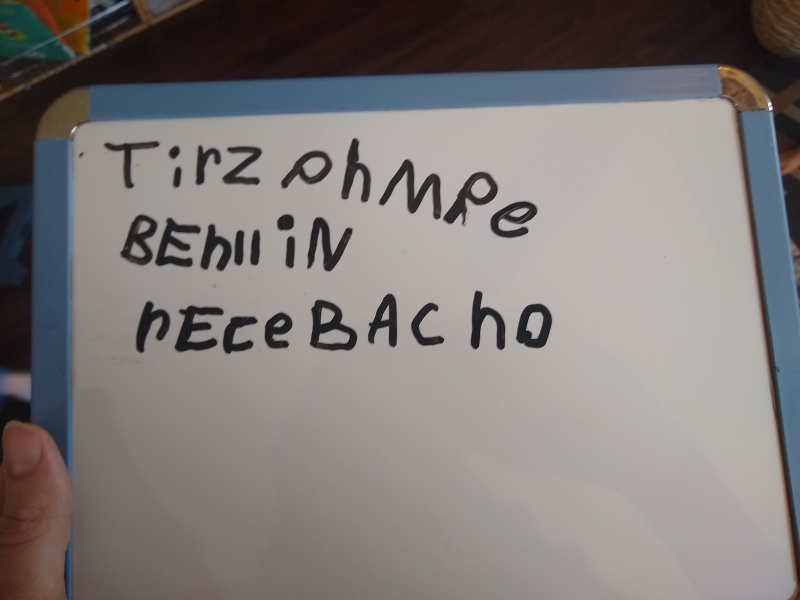Unit studies were all the rage when I was reading about homeschooling in my mid-teens. Monthly themes governed every subject in the homeschooling curriculum.
A unit study on bugs would have children reading about bugs, catching bugs, counting bugs, exploring the bug ecosystem, learning about how bugs are used in different cultures or throughout history. Bug art would abound.
If mom didn’t have the time, energy, or creativity to come up with her own unit study, websites and books offered an abundance of options.
Learning like this is more natural, the unit study people declared.
I wished I could jump on the bandwagon, but it was unfortunately too difficult for me to figure out how to connect bugs to calculus.
It wouldn’t be long before a radical old approach became popular, thanks to Jessie Wise and Susan Wise Bauer’s The Well-Trained Mind. This new approach was much more systematic than either the unit study approach or the traditional school approach (at least as far as social studies is concerned).
Wise and Wise Bauer’s brand of classical education focused on a four year cycle for both history and science – strictly (for history) and loosely (for science) following the progression of historical thought through the ages.
The Well-Trained Mind gave an example of how students make connections, even when their mothers don’t plan in such a way as to make the connections explicit. They used “Mars” as an example. A student might learn the mythology of Mars when studying the Roman Empire and later learn about the planet Mars (red with blood, like the warlike god). Likewise, he will learn about the martial arts and will trace the term “martial” back to the god of war. Each bit of knowledge becomes a hook upon which other pieces of knowledge (from disparate disciplines) are hung.
When I read this example, I nodded my head. Sure, I acknowledged that was probably true. It’s like when you get a new car and suddenly see that make and model all over the road. It’s not that those cars weren’t already there, it’s just that you became more aware of them.
But apart from my car example, I couldn’t really think of a time when I’d had “hooks” to hang new information on.
Then my husband and I checked out Tom Reiss’s The Black Count to listen to during our fourth of July travels. The Black Count tells the story of the novelist Alexandre Dumas’ father (also named Alexandre Dumas), a general during the French Revolution.
Now, until a year ago, what little I knew of the French Revolution came from Charles Dickens’ A Tale of Two Cities (not a bad read by any means, but certainly not a comprehensive introduction to the Revolution.) But last year, that changed when Daniel and I started listening to Mike Duncan’s Revolutions Podcast. We listened as Duncan gave a history of the English Revolution, and then the American Revolution, and then the French (he’s not done with the French Revolution yet – and I haven’t listened past the first dozen or so podcasts on the French Revolution.) As we listened, I’ll admit that my eyes sometimes glazed over and my mind started wandering. So much was so unfamiliar – the names, the events, the political bodies.
But as we listened to The Black Count, something strange happened. I started hearing the names, the political bodies, the events I’d heard before. And I listened more carefully this time around. It picqued my curiosity to read more, to relisten, to become more familiar with the French Revolution.
I thought of the differences between unit studies and a more systematic approach as I listened.
While Daniel and I were listening to one podcast after another after another of Duncan’s Revolutions, I got worn out with the topic. If I’d have been listening to The Black Count concurrently, I likely would have ignored the parts about the French Revolution, thinking I’d heard it before.
But, listening to it several months later, I was able to see the Revolution through fresh eyes, able to enjoy it, able to pass through again to impress the events more deeply upon my own memory.
I feel that there must be application to how I choose to homeschool someday, but I’m not sure exactly what it is.
I’m still rather enamored with the Bauer and Wise Bauer approach to history studies. I still rather enjoy immersing myself in a topic every once in a while. But I think this has reminded me that connections can be anywhere – and that it’s okay to let them arise naturally.
I don’t have to beat my children (or myself) over the head with learning. I have to make plenty of good books, good audiovisual learning opportunities (like Duncan’s podcasts!), good educational experiences available to my children.
They will make connections – even if it takes them until they’re 30 to start recognizing it.


